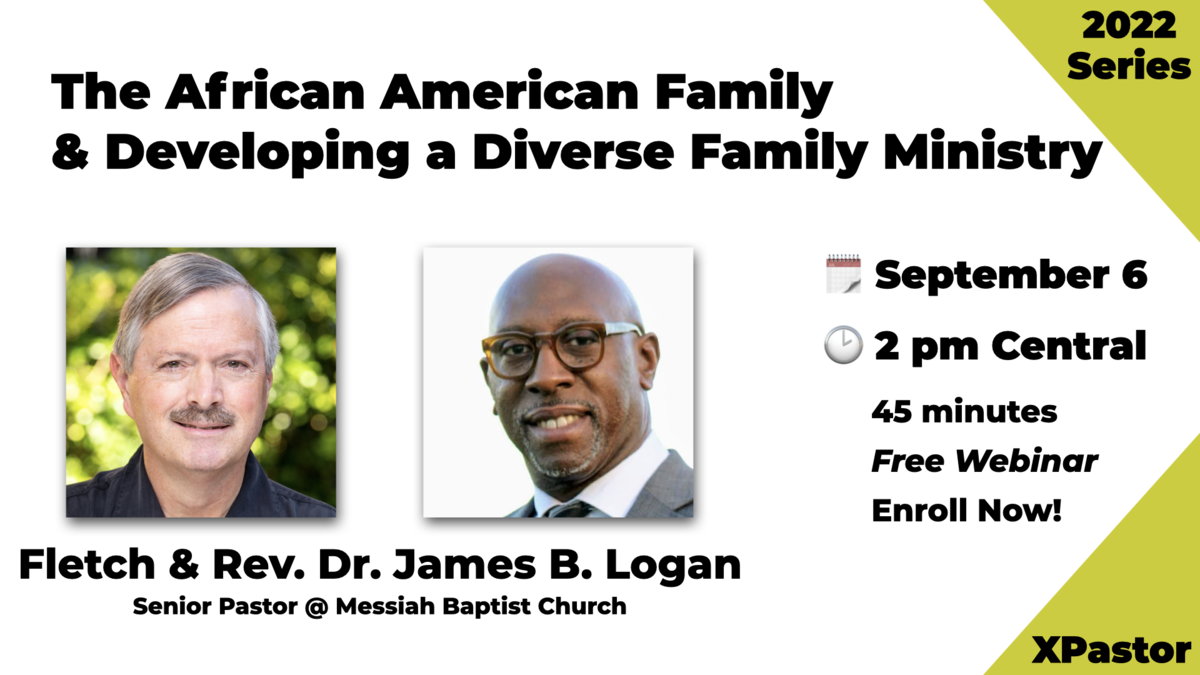XPastor tries to help churches out by providing some of the essentials for running a church—items like job descriptions, employment applications, review forms, applications, employee handbooks and policies. Below is the 2008 Missions Policy from BCF Church.
I. Purpose
A. Definition of Missions
Bible Fellowship Church defines missions to be any evangelistic or training endeavor outside our local congregation to fulfill the Great Commission by proclaiming the gospel of Christ, making disciples and gathering these disciples into local congregations, while relating to the needs of the total person (spiritual, physical, emotional and social).
B. Purpose Statement
The goal of our missions effort is to win individuals to the Lord, equip them in the faith and establish churches that have the same aim in every tribe, tongue, people and nation (Acts 14:21-23; Rev. 5:9). The Missions Leadership Team and the Board of Elders will seek to guide BFC toward the fulfillment of this purpose.
C. The Missions Policy
- Purpose—The purpose of the missions policy is to:
- Provide guidelines which support BFC’s priorities, evangelistic, and strategic vision.
- Make important decisions based upon clear purpose and objectives.
- Maintain consistency as team membership changes.
- Insure good stewardship in the allocation of missions funds.
- Exceptions—This policy is a statement of principles, not a rigid set of rules. Occasionally, exceptions will need to be made. The approval of the majority of the Elder Board is needed to approve exceptions.
- Revisions—The missions policy will be reviewed each year and revised as often as needed. The Board must approve all major revisions before implementation.
II. The Missions Leadership Team
A. Size and Selection
The Missions Leadership Team includes the World Outreach Director, designated elder(s), executive pastor and select members of the World Outreach Team.
The World Outreach Team is a gathering of those who are interested in missions and prayer. They may make recommendations to the Missions Leadership Team; however, all policy, budget and strategic decisions will be recommended by the Missions Leadership Team, and must be approved by the Board of Elders.
B. Responsibilities of Missions Leadership Team and World Outreach Team
- Pray—Encourage intercession from the congregation for global outreach and for our missionaries.
- Strategize—Develop a missions philosophy with short and long-range goals, with recommendations presented to the Board of Elders for consideration and approval.
- Educate—Develop and provide a comprehensive missions education program for the entire congregation (adults & youth). This will include information about the world and our missionaries.
- Mobilize—Utilize resources of the church to further the gospel. This includes offering short-term and other global outreach opportunities.
- Recruit/Train—Equip individuals from within our congregation who plan to become missionaries.
- Send—Support missionaries spiritually, financially and emotionally.
- Care—Provide practical assistance to missionaries while they are on their field and home assignments.
- Support—The Missions Leadership Team will prepare a missions budget, which shall be approved by the Board of Elders, and oversee the allocation of the funds throughout the year.
- Represent—Serve as a liaison between the church, our missionaries and mission agencies.
- Evaluate—Review the missions program of the church and make recommendations to Board as necessary. This includes evaluating the missions policy statement, as well as the ongoing support for missionaries, organizations and projects.
III. Strategy
A. Overall Strategy
Aware of our dependence upon the Holy Spirit, the Missions Leadership Team will establish short and long-range goals for our various responsibilities.
B. Priorities
We have a two-fold missions strategy: mobilization and global evangelization. Mobilization includes our efforts to help our people become more missions active. This is primarily accomplished through cross-cultural ministry. Global/local evangelization includes our efforts to help complete the Great Commission. While there is overlap between the two, we have different goals for each category.
- Mobilization Priorities
- Ministries sponsored by our church. This includes church short-term teams or any other cross-cultural ministries we initiate.
- Ministries sponsored by individuals from our church and endorsed by us.
- Developing partnerships between our missionaries and church family (through prayer and member care support through the Fresh Lemonade ministry).
- Global/Local Evangelization Priorities
- Missionary Support: Priority will be given to members of Bible Fellowship Church or those who are second-generation missionaries whose parents were sent out from this church.
- Strategic Partnerships: These ministries are more encompassing than merely giving funds. In these cases, our church commits to be an active partner in a particular ministry. This may involve sending short-term teams, hosting or attending conferences, sending our pastor to a site on a yearly basis, such as a Catalyst or Bosnia undertaking.
- Strategic Ministry Support: This category includes those opportunities where we can make a difference for the Kingdom of God, regardless of any relationship or benefit to our church. We assist because it is a part of our global call to help the poor, needy, broken, and lost. We might not have any involvement other than giving. We may never see the missionary or national we support. This support could be for people or projects, such as Compassion, Samaritan’s Purse, Tsunami support, or others.
- Overall Priorities
- Priority will be given to church planting, evangelism and the teaching of nationals.
- Priority will be given to those who have least access to the gospel (traditionally called unreached peoples).
- Priority will be given to training, encouragement and support of leaders on the field.
- Priority will be given to missions mobilization.
c. Future Missions Budget Projections
It is our desire over a period of years for the missionary support segment of our missions budget to approximate the following percentages:
|
DOMESTIC 10% |
FOREIGN 90% |
|||||
|
5% |
2% |
5% |
30% |
20% |
25% |
13% |
|
Mono-cultural Evangelism and Church Planting |
Ethnic Evangelism and Church Planting |
Support Ministries and Retirement Support |
Evangelism and Church Planting/ Foreign teaching of nationals |
Unreached Peoples |
Leadership Development and Member Care |
Support Ministries |
Explanations:
- Domestic Mono-cultural Evangelism/Church Planting Ministries: The target group is our own cultural population. Ministries could include such things as evangelism and discipleship on college campuses, church planting, community care agencies, or others.
- Domestic Ethnic Evangelism/Church Planting Ministries: The target group is people from a different language and/or cultural group. Ministries could include evangelism and discipleship of international students, church planting among Hispanics, or others.
- Domestic Support Ministries/Retirement Support: These individuals are the support personnel who assist the previous categories of workers. This category includes workers such as secretaries, accountants, administrators, and mission representatives of organizations that work only in our country. Retirement support is for those who have served as cross-cultural workers and are now retired or semi-retired serving as representatives on behalf of their mission agency.
- Foreign Evangelism/Church Planting Ministries: The people ministered to are nationals who live outside our country. Ministries would include church planting and evangelism.
- Foreign Teaching Nationals: The people benefited are nationals who live outside our country. Activities include teaching the Bible or ministry skills. This category would include Bible institute teachers, theological education by extension instructors, Bible translators, English as second language, or others.
- Unreached/Least Reached People Groups (UPG): A people group where there is no indigenous community of believing Christians with adequate numbers and resources to evangelize this people group. UPG is defined as less than 2% evangelical Christians.
- Leadership Development and Member Care—Training, support and encouragement of cross-cultural leaders/workers and their families.
- Foreign Support Ministries: This person may be in our country or overseas. The ministry is one that allows other cross-cultural workers to function. This category includes secretaries, teachers of missionary children, missions representatives here in our country, pilots, or others whose goal is to assist those who serve overseas.
- Foreign Missions Mobilization: Mobilizers are people (inside and outside our country) who consult with churches, agencies and student groups to help them participate more aggressively and strategically in world evangelism.
IV. Short-Term Missions
A. Definition
This is any missions activity of one day to one-year duration. It must be field driven—the primary benefits going to those whom we are serving, not ourselves.
B. Purpose
Our primary purpose is to strengthen national believers and/or evangelize non-believers or lend support to projects initiated by our missionaries. Our secondary purpose is to mobilize and educate our constituency to be more missions active.
C. Short-Term Missions Criteria
- The short-term mission must be in a subordinate partnership with a national church, a long-term missionary or mission agency.
- There must be a clear, long-term strategy in place.
- There must be a qualified leader for the ministry.
- There must be appropriate pre-field training.
- There must be appropriate debriefing and follow-up plans for those who ministered.
Note: Short Term Trips should: (a) do no harm to the ongoing work, (b) expand the vision of those who participate, and (c) accomplish something in this order rather than the other way around.
D. Priorities
- Short term mission trips are a key part of our strategic plan.
- The ministry is sponsored or endorsed by our church.
- The ministry will help a person evaluate a long-term missions ministry.
E. Short Term Support
BFC is unable to provide budgeted support for individual short-term trips due to commitments to full time missionaries. Individuals interested in short-term projects may contact the Missions Leadership Team to inform them about the trip. If the Missions Leadership Team feels that the individual and project are qualified, the individual can submit a brief notice to the weekly bulletin to run three weeks informing the congregation about their short term project and financial needs.
Staff Led Short Term Missions Projects
Short Term projects require Elder Board approval (i.e. Mexico, Bosnia, Costa Rica, Navajo Indian Reservation). Those wishing to participate in a BFC led short-term missions trip must complete the required application and submit to the project leader. The project leader will select applicants based on the following criteria:
- A demonstrated faith in Christ, character of Christ, and heart for extending the Gospel to others.
- Strong participation in ministry at or through BFC.
- Effectiveness as a part of any mission projects in the past.
- Recommendation by others of the applicant.
- Suitability for the mission project.
- Demonstrates strong relational and teamwork characteristics.
- Willingness and ability to contribute half of their own personal support.
V. Financial Policies
A. Annual Budget
The Executive Pastor and World Outreach Director will prepare an annual budget each year to be submitted to the Board.
B. Minimum/Maximum Support
Monthly support will be a minimum of $300 for all new applicants and will not exceed $1,200 per month.
C. Monetary Support
Support for a missionary will be given on a monthly basis.
D. Outfitting Expenses
In order to help with outfitting expenses, BFC will communicate launching needs and encourage attendees to give direct through the sending agency to help with these needs.
E. Ministry Evaluation
The Missions Leadership Team will evaluate all missionaries and ministries at least once every four years. This will occur when they are on home assignment.
F. Ministry Changes
If there is a major change in either the ministry and/or location or if the missionary joins a different mission agency, the Missions Leadership Team and Board will immediately reevaluate its support commitment. BFC requests advance notice of any significant changes in ministry.
G. Support Termination
While termination of financial support for a missionary is the exception with BFC, the Elder Board will have all final authority to terminate support. Should support be terminated, we will strive to do it in such a way as to limit the negative effects on the missionary and will give at least six months notice and will attempt to avoid support changes while the missionary is on the field.
H. Support Review
Based on available funds, each year the Missions Leadership Team will review the support needs of currently supported missionaries and consider recommending support for additional missionaries.
I. Funding Priorities
The expenditure of funds will be consistent with the priorities mentioned earlier.
J. Budget Items
The missions budget not only will include missionary support but also other items needed to fulfill the goals of the Missions Leadership Team (for example: missions conference, funds for pastoral visits to mission fields, books, short-term projects, hospitality/member care for visiting missionaries, etc.)
VI. Missionary Selection Policies
A. Qualifications of Full Time Missionaries
- All applicants must be in agreement with BFC’s Statement of Faith.
- They must be accepted for service with a mission agency approved by the Missions Leadership Team. Tentmakers and nationals may be an exception in special situations.
- They must have a proven track record in ministry.
- They must demonstrate the qualities found in 1 Timothy 3:1-10.
- Their home church must be in agreement with their decision.
- The Missions Leadership Team and Elder Board will use their judgment in choosing missionary candidates based on a combination of factors including training and gifting; spiritual, emotional and relational maturity; the call of God; the ability to cope under stress; ability to generate support; and record of service and experience.
B. Application Procedures
Applicants must:
- Complete a written application.
- Meet with the World Outreach Director and representatives of the Missions Leadership Team.
- Meet with the World Outreach Team. If there is consensus, the Missions Leadership Team will recommend the applicant for Board consideration.
C. Responsibility of Bible Fellowship Church to On Budget Missionaries
- Remember the missionary in prayer.
- Communicate with each missionary monthly.
- Promote the work of each missionary within the church.
- Encourage the missionary.
- Send pledged funds in a timely fashion.
- Assist in securing housing, furniture and a vehicle for the missionary’s home assignment.
- Work toward a partnership relationship with the missionary and his/her agency.
- Specific support efforts from BFC:
- Fresh Lemonade—Missionary care efforts to support our missionaries on budget. Includes staff driven development of teams and partners, resourcing special needs, hosting parties, creating and updating prayer cards and web profiles.
- Partners in Prayer—Weekly prayer on Thursdays dedicated to the needs of missionaries. Prayer requests are emailed by BFC to Fresh Lemonade partners and those adopted by small groups.
- Missionary of the Month—In service highlight with prayer cards and special offering collected once a year.
- Christmas for Missionaries—Offering collected in October.
- World Outreach Weekend—Invitation to participate in BFC’s annual missions conference.
- BFC Network—The opportunity to network and raise financial support. We encourage our church body to give direct support to our missionaries by partnering with them.
- BFC Activities—Free tickets or discounted rates to attend BFC activities, retreats, and other programs when missionaries are in our city.
For those who consider BFC their home church, applicants can meet with the Missions Leadership Team. After evaluating the applicant based on the criteria listed above, the Missions Leadership Team will recommend that the Board consider the applicant to utilize the following resources:
- Applicant may submit a brief bulletin notice to run three weeks to communicate their ministry.
- Individuals attending BFC may choose to host a prayer time or friendship gathering on behalf of applicant.
- Applicant may make a presentation to the World Outreach Team.
- Applicant can have an information table at BFC’s annual missions conference.
- A public commissioning will be given to applicant when they prepare to leave for the field.
D. Responsibility of the Missionary to Bible Fellowship Church
- Communicate each month through Partners in Prayer by emailing prayer requests.
- Give the Missions Leadership Team advance notice of any significant changes in ministry and/or location.
- Spend time with the church during home assignments.
- Report written yearly goals and an appraisal of the last year’s activities (BFC Missions annual report)
- Provide the Missions Leadership Team updated support figures for each year.
- Work diligently in team building/maintenance with all supporters.
- Work toward a close partnership relationship with BFC.
VII. Commitment of Staff Time for Missions Trips
The desire of the Board of Elders is to maintain the priority of local outreach while advancing world missions in concert with church growth. The following policies reflect this desire.
A. Commitment of staff time for mission trips
There will be a cap of 23 weeks of total staff time away for mission trips from July 1 through June 30 each fiscal year. These Board approved trips are included in the job responsibilities of those going and do not count as vacation time.
B. Staff vacation time for mission trips
Staff may use vacation time for mission trips. However a minimum of two weeks vacation must be preserved for rest and renewal. If staff needs to raise support for a vacation-based missions trip, it must be approved by the Board or its designate.
C. Limits for individual staff mission trips
The Board recognizes that some on staff are especially gifted and called to missions ministry and will evaluate the total time each person will be commissioned to do mission trips on a case-by-case basis. The cap on total staff time for mission trips is not intended to limit the number or duration of paid missions trips by any single staff member, so long as the total cap is not exceeded. All requests by staff to do mission trips in the coming fiscal year must be received by the Board by March 1 each year.
D. Funding Strategy for World Outreach
The mission projects listed under the Catalyst budget were approved on April 3, 2006 with up to six weeks of Pastor paid time away, with approval to use Catalyst funds for an additional two-week trip if he decides to use vacation time for it. Funding for these projects will come though the Catalyst designated fund as previously established. If more money is given than needed for the Catalyst budget, the Board may use the extra funds for other mission projects.
The World Outreach Budget supported by general giving and other contributions will be used to fund current missionaries and some staff led mission projects.
View the original PDF: BCF Missions











